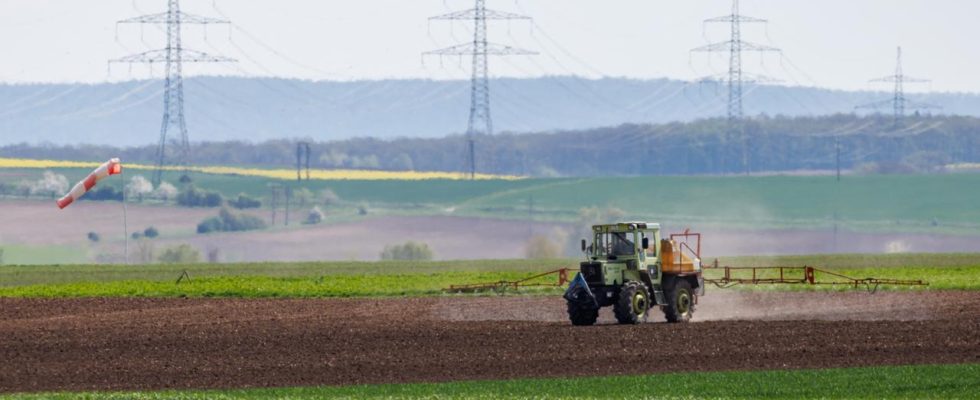After weeks of farmers’ protests, the European Parliament has withdrawn some environmental regulations in agriculture. The changes were approved in an expedited procedure and some even apply retroactively. Criticism of this comes from the Greens.
The EU Parliament has cleared the way for weaker environmental regulations in agriculture. MEPs voted in Strasbourg to allow farmers more flexibility in complying with environmental regulations. The changes to the Common Agricultural Policy (CAP) include, among other things, standards that are intended to ensure good agricultural and ecological condition of soil.
In principle, farmers must adhere to these in order to benefit from the EU agricultural subsidies worth billions. These include specifications for fallow land, buffer strips along bodies of water and crop rotations, which are intended to ensure that soils are not unduly affected by agricultural use.
No more pressure to leave areas fallow
So far, for example, farmers have been obliged to leave part of their arable land fallow or to use it unproductively. They can now do this voluntarily until at least 2027. They should then be rewarded for this by the EU states. The EU states should be given more leeway when it comes to the requirements for the cultivation of catch crops.
Agricultural businesses should also be allowed to convert more meadow areas into arable land. This would particularly benefit livestock farmers who are switching to grain cultivation due to poor business.
Fewer controls on smaller farms
If farmers suffer from droughts or floods, crop rotation requirements should also be weakened. The companies would then only have to grow different types of plants, but would no longer have to change the varieties every year.
The plans also stipulate that small farms with an area of less than ten hectares can be exempted from controls and sanctions related to environmental requirements.
Most of the planned changes to the CAP are scheduled to come into force in 2025, but some will also come into force retroactively to January 1, 2024. Companies would thus avoid sanctions if they have not yet observed the requirements.
Praise from the CDU, criticism from the Greens
Farmers have been putting pressure on politicians for a long time – among other things, they complain about too much bureaucracy. At the beginning of the year they took to the streets in many EU countries and demonstrated, sometimes violently. The EU Commission clearly approached farmers with its proposals.
The chairman of the Agriculture Committee in the European Parliament, Norbert Lins, praised the vote as a “great success for European agriculture”. The farmers’ protests were heard and delivered. He called on Federal Agriculture Minister Cem Özdemir (Greens) to “implement today’s decisions in Germany one-to-one.”
The Green Party politician Jutta Paulus criticized: “It’s not the farmers who benefit from this, but the fertilizer and pesticide industry.” The vote was a “slap in the face of science.”
The EU states still have to agree, but that is considered very likely. The new requirements could come into force as early as this year. The project proposed by the Commission was passed through Parliament in an expedited procedure.

